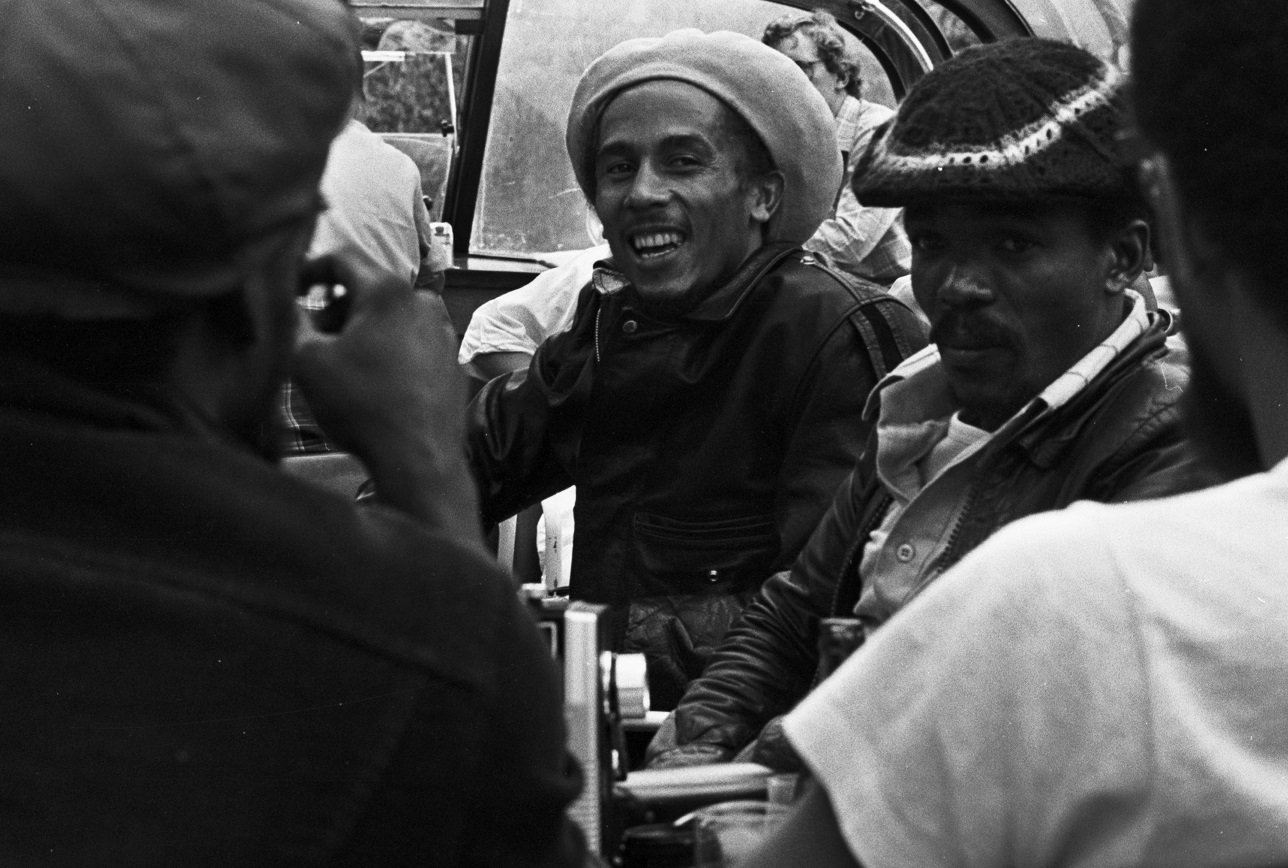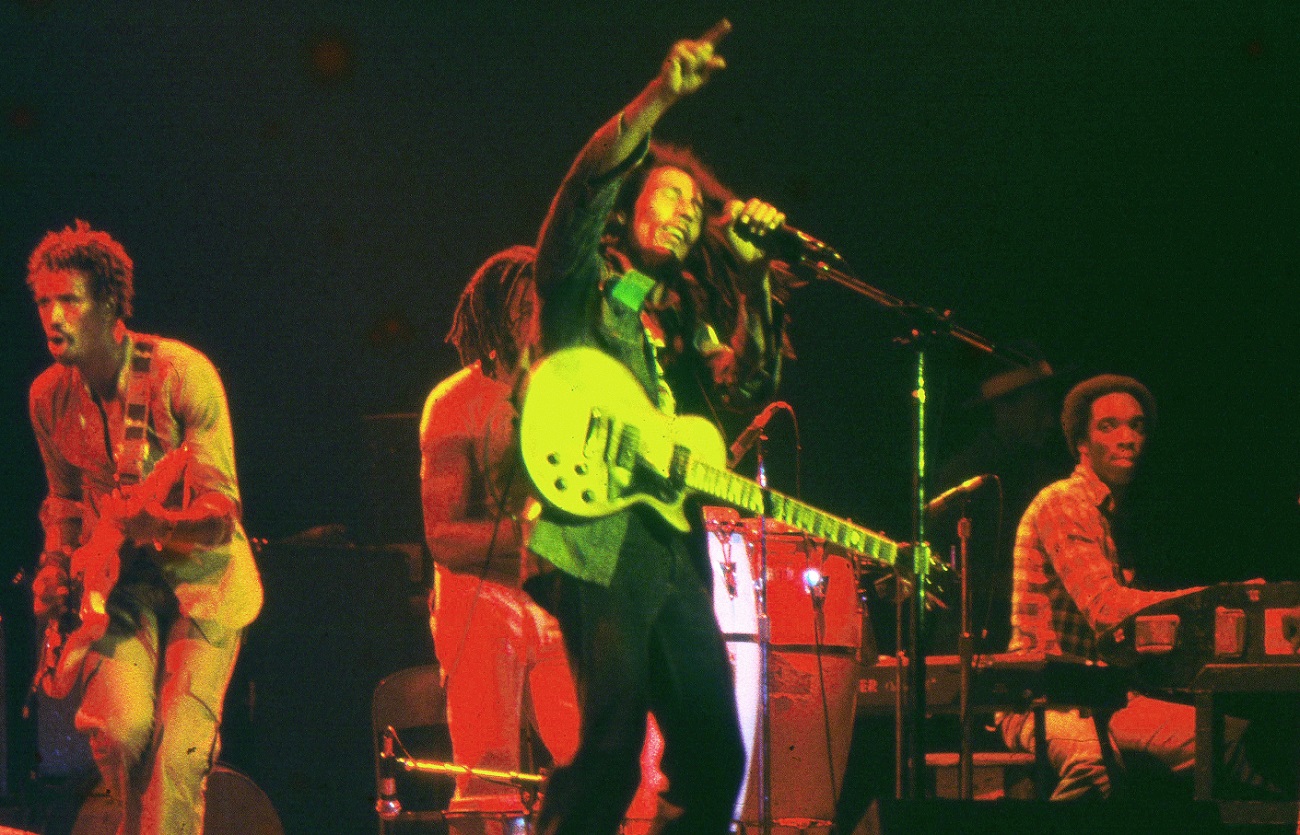Why Bob Marley’s Bandmates Expected to Share His Songwriting Profits
The story of Bob Marley’s rise in the music industry is in some ways a familiar one. It began with Marley and The Wailers scoring hits on the Jamaican charts and local record producers keeping most of the profits for themselves. Eventually, Marley got a deal with Island Records and began to see real money for his work.
But the money disputes didn’t end there. When Peter Tosh and Bunny Wailer went their own ways after Burnin’ (1973), the two original Wailers reportedly received minimal severance pay. That created some bad blood (especially for Tosh).
That marked the start of the “Bob Marley and The Wailers” era, with Marley in full control. However, his collaborative songwriting style began to rub bandmates and contributors the wrong way, beginning with Natty Dread (1974). In later years, Wailers questioned — and in some cases sued — over the lack of songwriting credits on the albums.
Bob Marley’s bandmates believed work on ‘Jamming’ and other songs warranted credit

After Marley and his friend Lee Jaffe got their first look at the Natty Dread LP, Jaffe had a question: Where was his credit for playing harmonica and co-writing “Talkin’ Blues”? Marley ignored Jaffe’s complaints, and it drove a wedge between them that never quite healed.
Following that confrontation (which apparently ended in a fistfight), Jaffe said he understood the resentment Tosh had felt upon his exit from The Wailers. But at the same time Jaffe felt puzzled, for Marley had credited others who hadn’t written songs with him.
Tyrone Downie, who was a teenager when he joined The Wailers, said he didn’t know anything about publishing credits when he started out with Marley. If he had, Downie would have expected to see royalties for “Jamming.”
“‘Jamming’ was my song,” Downie told Roger Steffens in So Much Things to Say (2017). “All Bob did was say ‘Jamming, I wanna jam it with you.’ But every one of those verses were mine. And ‘Waiting in Vain’ — I wrote half that. ‘I’ve been waiting on your line / And the waiting feel is fine.’ Bob doesn’t write like that.”
Marley at times credited his wife and friends instead of co-writers

In So Much Things to Say, Downie spoke of Marley and the Wailers’ highly collaborative process. They’d often sit around working out lyrics and chords to songs together. Junior Marvin, the Wailers guitar player who joined the band prior to Exodus, backed up the experiences of Jaffe and Downie.
“Bob was still putting final touches to the lyrics and the music with Tyrone Downie, who at the time was filling in on bass,” Marvin told Uncut in 2019. “Tyrone and myself helped write ‘Exodus’ and ‘Is This Love?'”
In some cases, it sounds like Marley’s bandmates and friends expected more credit than they’d have gotten for a snippet of lyrics or song embellishment. (John Lennon, for example, didn’t credit others for such things.) But if Downie had written all the verses to “Jamming,” that’s a different story.
“I didn’t realize when we were writing the song, I didn’t know what publishing was,” Downie said in So Much Things to Say. “I thought when you played on a record, that was it: You got paid. That’s how naïve a lot of Jamaican musicians are.”
Aston “Family Man” Barrett, who (like Marley’s wife Rita) did receive credits on songs, sued the Marley estate for unpaid royalties and other claims in the early 2000s. But Barrett had already made a settlement with Marley’s estate, and the suit didn’t go anywhere. At this point, the credits aren’t changing.


